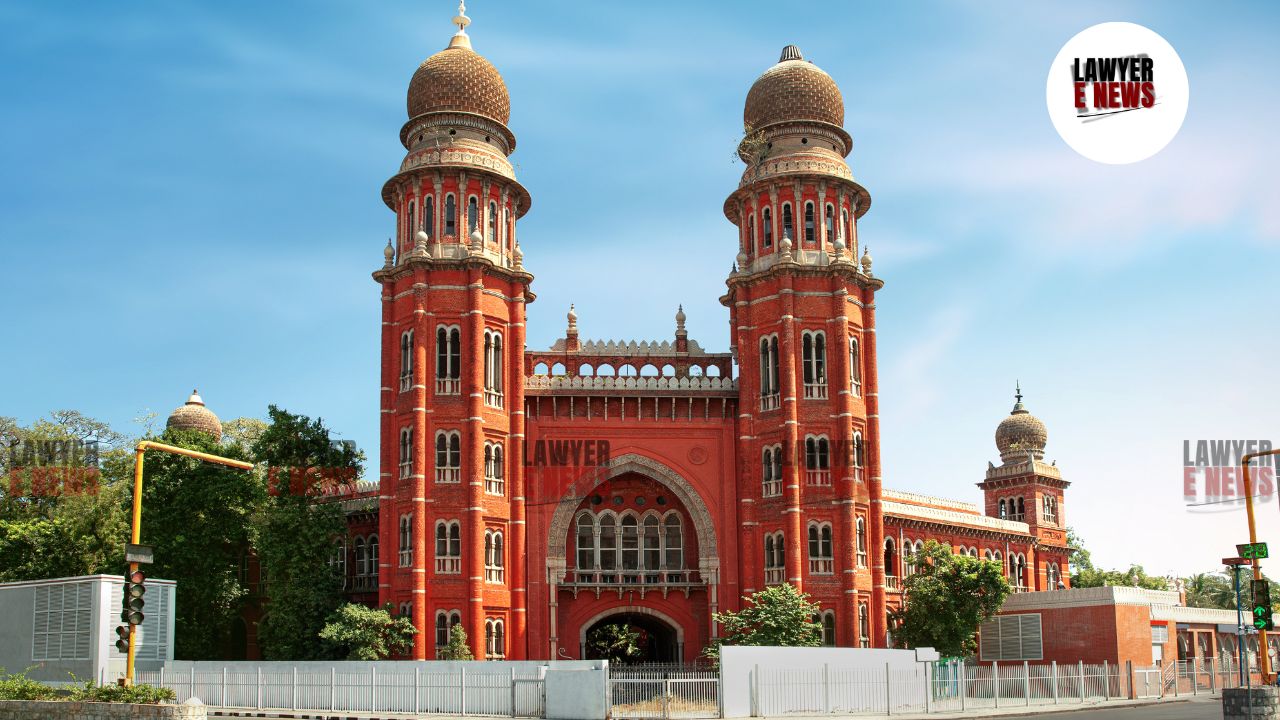-
by Admin
15 February 2026 5:35 AM



Madras High Court, presided over by Justice R.N. Manjula, dismissed a second appeal in G. Krithika & Ors. v. S.P. Chitra (S.A. No. 92 of 2022), upholding the validity of a promissory note in a recovery of money suit. The appellants, legal heirs of the deceased Ramachandran, contested the execution of the promissory note, alleging it was fabricated. The court ruled in favor of the respondent (plaintiff), stating that oral evidence sufficed to establish the note's authenticity despite adverse expert opinion on the signature.
The dispute arose from a recovery suit filed by S.P. Chitra against the legal heirs of Ramachandran, who allegedly executed a promissory note for ₹7,00,000 on October 28, 2011. Ramachandran passed away in June 2012. The appellants, his wife, daughter, and mother, denied the execution of the promissory note, arguing it was fabricated and not Ramachandran's signature. The trial court dismissed the suit, citing the plaintiff's failure to conclusively prove the execution of the note. However, the first appellate court reversed this decision, finding the oral evidence sufficient to establish the claim, leading to the present second appeal.
The primary legal questions revolved around the validity of the promissory note, the evidentiary value of expert opinion, and the applicability of Section 118 of the Negotiable Instruments Act, 1881, regarding the presumption of execution.
Execution of Promissory Note & Presumption (Section 118, Negotiable Instruments Act): The plaintiff initially sought to benefit from the presumption under Section 118 of the Negotiable Instruments Act, but the defendants' denial of Ramachandran's signature shifted the burden of proof back to the plaintiff. The trial court found the plaintiff's evidence insufficient but the appellate court ruled that oral evidence of the plaintiff’s witnesses, who were acquainted with Ramachandran's signature, sufficiently proved the execution of the promissory note.
Expert Opinion vs. Oral Evidence (Section 114(g), Indian Evidence Act): The trial court had relied on adverse expert opinion, which found that the signature on the promissory note did not match Ramachandran’s known signatures. This led the court to invoke Section 114(g) of the Indian Evidence Act, which allows for adverse inference when a party withholds crucial evidence. However, the first appellate court, and subsequently the High Court, held that oral evidence from witnesses familiar with the deceased’s signature was sufficient. The court emphasized that expert opinion, while relevant, is often considered weak and secondary evidence compared to credible oral testimony under Section 47 of the Indian Evidence Act.
Adverse Inference and Section 114(g) of the Indian Evidence Act: The trial court’s decision to invoke Section 114(g) against the plaintiff for not marking the expert opinion was found to be misplaced by the appellate court. The expert opinion was available on record and could have been marked if the court deemed it necessary. The High Court concurred that adverse inference should not have been drawn as the plaintiff had the right to choose whether to rely on the expert opinion or other forms of evidence.
Justice R.N. Manjula upheld the first appellate court's decision, agreeing that oral evidence provided by the plaintiff’s witnesses was sufficient to prove the execution of the promissory note. The court noted that expert opinion, while part of the evidentiary framework, is often regarded as a weak form of evidence when weighed against direct oral testimony.
The court also declined the appellants' request for remand to the trial court to re-examine the expert evidence, finding that the evidence already on record had been sufficiently dealt with. The first appellate court had properly assessed the available oral evidence and corroborative factors, making remand unnecessary.
The Madras High Court dismissed the second appeal, confirming the first appellate court's judgment in favor of the respondent (plaintiff) and holding that the promissory note was validly executed by the deceased. The court emphasized that oral evidence, when credible, can override the impact of adverse expert opinion. No costs were awarded.
Date of Decision: September 20, 2024
G. Krithika & Ors. v. S.P. Chitra
